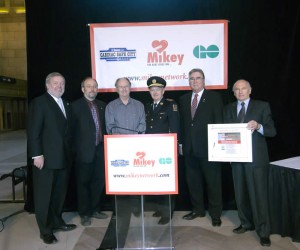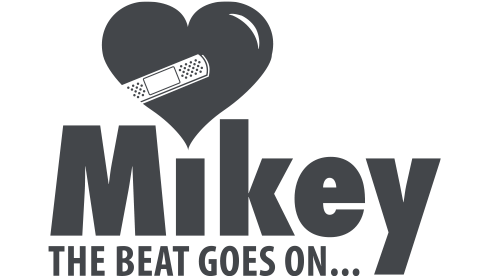
 The Sick Kids Hospital and The Mikey Network have developed the Mikey’s Kids Program. This program allows children who have been diagnosed with a heart disease to go home while waiting for treatment or transplants. These children would not be discharged from the hospital without receiving a Mikey unit.
The Sick Kids Hospital and The Mikey Network have developed the Mikey’s Kids Program. This program allows children who have been diagnosed with a heart disease to go home while waiting for treatment or transplants. These children would not be discharged from the hospital without receiving a Mikey unit.
SickKids Hospital is an important partner in an initiative aimed at children, called the Mikey’s Kids Program. The Network supplies Mikeys to families whose children have serious heart conditions so they and their families can leave the hospital knowing that a Mikey is at hand should their heart happen to skip a beat.
The Mikey Network’s mission involves helping people of all ages, and it has been gratifying to help so many families through the Network’s partnership with SickKids Hospital.
“The Mikey Kids-at-Home program ensures that families from all parts of Ontario, whose children have life-threatening heart conditions, have access to life-saving AED technology,” says Dr. Joel Kirsh. “This provides high-risk patients, their families and their medical team at SickKids wonderful piece of mind.”
Social workers at The Labatt Family Heart Centre at SickKids wrote, “Through the generosity of The Mikey Network in supplying defibrillators for the children and training for their caregivers, these children are able to be at home when they might not have otherwise been able to safely do so.”
The peace of mind these Mikeys provide for families is priceless, knowing that should their child’s heart skip a beat, life-saving help is close at hand.
Letter of Appreciation
Dear Mikey Network,
There are times in everyone’s lives when words just aren’t big enough to express what we would like to say. This is one of those times for us. There simply are not enough words in order to be able to properly thank you for having donated an AED to our family.
 I can’t begin to tell you what we felt when we were told that Kyle, our 9 year old son, has Long QT or sudden death syndrome. We knew that his collapsing and fainting wasn’t normal, however, it never prepared us for the possibilty of Long QT. It was if the bottom of our world fell out and we were left stranded. To be told that our only child could collapse and die at any given moment without warning is overwhelming. To be unable to prevent it is even worse.
I can’t begin to tell you what we felt when we were told that Kyle, our 9 year old son, has Long QT or sudden death syndrome. We knew that his collapsing and fainting wasn’t normal, however, it never prepared us for the possibilty of Long QT. It was if the bottom of our world fell out and we were left stranded. To be told that our only child could collapse and die at any given moment without warning is overwhelming. To be unable to prevent it is even worse.
However, thanks to you and your organization’s donation of the AED, we now have the one tool that will enable us to save our son’s life when he collapses again. Without the AED, I don’t know where or what we would be doing. It helps us get back to a more normal life, knowing that we have a chance to save our son in the event that his heart stops again.
The gift that you have given our family is the gift of our son’s life and for that we have really no appropriate words that will express to you just how thankful we are. Thank you for helping us in such a difficult time.
Should there be anything that we could do to pay this gift forward, please don’t hesitate to ask. It would be our pleasure to offer any assistance possible.
Yours truly,
Jone Wright, David and Kyle Hunter
Mikey’s Kids Program Helps Families
 “The Mikey’s Kids Program ensures that families from all parts of Ontario, whose children have life-threatening heart conditions, have access to life-saving AED technology,” says Dr. Joel Kirsh of SickKids Hospital – one of The Mikey Network’s critical partners. “The availability of an AED for these high-risk patients gives the families (and their medical team here at SickKids) wonderful piece of mind.”
“The Mikey’s Kids Program ensures that families from all parts of Ontario, whose children have life-threatening heart conditions, have access to life-saving AED technology,” says Dr. Joel Kirsh of SickKids Hospital – one of The Mikey Network’s critical partners. “The availability of an AED for these high-risk patients gives the families (and their medical team here at SickKids) wonderful piece of mind.”
In July, The Mikey Network received a letter from social workers Laurie DeOliveira, Ruta Niedra and Kim Thompson of The Labatt Family Heart Centre at SickKids. They wrote, “We would like this opportunity to extend our thanks to you and The Mikey Network for your generous donations of defibrillators for several families that have recently been seen in the Labatt Family Heart Centre, either as in-patients or out-patients. Through the generosity of The Mikey Network in supplying defibrillators for the children and training for their caregivers, these children are able to be at home when they might not have otherwise been able to safely do so.”
The Network recently donated a Mikey to the Van Hees family of Burlington. Melanie and James’ two-year-old son Jakob has ventricular tachycardia, which places him at risk of sudden cardiac arrest. “Both our families have cottages near Kingston,” Melanie says, “and we wouldn’t feel comfortable going there – or anywhere else – without the security of the Mikey. We appreciate everything The Mikey Network stands for.”
Portable Reassurance
 Having one child with a heart condition is stressful, but Laurie Hobbs is raising three young children who are at risk of developing the same heart-related diseases their father died of at age 31- Hypertrophic Cardiomyopathy and Long QT Syndrome. Knowing that at any time, Joshua (13), Owen (4) and Tyler (2) might experience cardiac arrest, Laurie is on constant alert for anything that might cause an adrenaline release and possibly trigger the condition. In 2006, through Toronto’s SickKids Hospital (a critical partner in The Mikey Network), we donated two MIKEYS to Laurie to help her and her family.
Having one child with a heart condition is stressful, but Laurie Hobbs is raising three young children who are at risk of developing the same heart-related diseases their father died of at age 31- Hypertrophic Cardiomyopathy and Long QT Syndrome. Knowing that at any time, Joshua (13), Owen (4) and Tyler (2) might experience cardiac arrest, Laurie is on constant alert for anything that might cause an adrenaline release and possibly trigger the condition. In 2006, through Toronto’s SickKids Hospital (a critical partner in The Mikey Network), we donated two MIKEYS to Laurie to help her and her family.
“It’s a difficult diagnosis for parents to deal with,” Laurie says. “My husband was never diagnosed with these conditions, which is why he passed away. I had a difficult time coping until we received the MIKEYS, which have made a huge difference in all our lives.” Thanks to the MIKEYS, Laurie was able to take the children to their cottage last summer, where she says they have wonderful memories of their dad. “The MIKEY is easy to carry,” she adds. “I take it everywhere, even to WalMart. I feel like I’m a better mother with the defibrillator so handy.” Laurie and most of her family members have been trained by Toronto EMS in how to use the MIKEYS. “What a coincidence that my husband’s name was also Mike,” she says. “Helping to save lives is a wonderful way to honour Mike Salem’s memory.”














